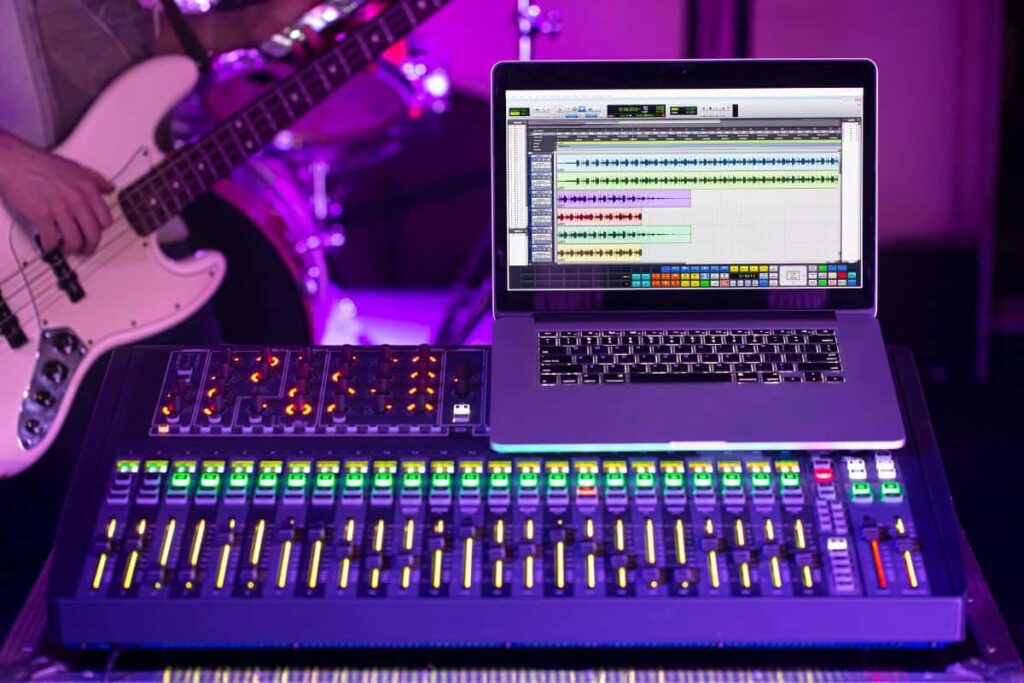Whether you are a seasoned producer or a beginner on a musical journey, the performance and efficiency of your notebook can significantly impact your creative process. Having a capable laptop for music production is paramount. This article explores essential tips and tricks for optimizing your laptop to unleash its full potential for music production.
Selecting the Right Hardware
When optimizing your laptop for music production, the first step is selecting the proper hardware. A powerful processor is the heart of your laptop, responsible for handling the complex calculations involved in music production. Look for laptops with multicore processors like Intel Core i7 or AMD Ryzen 7, as they excel in multitasking and can effortlessly run digital audio workstations (DAWs) and virtual instruments.
In addition to a robust CPU, ample RAM is essential. You can consider laptops with at least 16GB of RAM, but opt for 32GB or more if your budget lets. More RAM ensures smoother performance when handling large audio files and complex projects.
Dedicated graphics cards are not a top priority for music production, but they can help with visual aspects like video editing or graphical work within your projects. A laptop with multiple USB ports for connecting external equipment, such as MIDI controllers, audio interfaces, and external hard drives.
Solid-State Drives (SSDs) for Speed
Solid-state drives (SSDs) are a game-changer for music producers. These storage devices offer lightning-fast data access, reducing load times for your music software and projects. When you open a project or load a sample library, an SSD ensures that it happens in the blink of an eye.
Consider a laptop with an SSD as your primary drive, and if your budget allows, choose one with a larger capacity to accommodate your music production files comfortably. Alternatively, if you already have a laptop with a traditional hard drive, you can upgrade it by replacing the HDD with an SSD. It can breathe new life into an older laptop and significantly improve its performance.
Another benefit of SSDs is their durability and reliability. They have no moving parts, making them less vulnerable to physical damage. That means your music projects and valuable data are safer, and you won’t have to worry about drive failures causing data loss.
RAM Matters
Your laptop’s RAM is crucial in your music production experience. RAM is your best friend When working with digital audio workstations (DAWs), virtual instruments, and effects plugins. It allows you to keep multiple tracks and software instruments loaded in memory, reducing the need for your laptop to access the storage drive constantly.
For optimal performance, aim for at least 16GB of RAM. This amount will handle most music production tasks comfortably. However, if you work on complex projects with numerous tracks and virtual instruments, consider upgrading to 32GB or more.
More RAM provides headroom for creativity. It means you can experiment with different sounds, layer tracks, and use resource-intensive plugins without encountering slowdowns or audio glitches. In music production, having ample RAM is like having a spacious and well-organized studio – it allows you to focus on creating music without technical limitations.
External Audio Interfaces
Invest in a high-quality external audio interface to improve audio input and output quality. These devices offer low-latency audio processing and superior sound quality, essential for recording and mixing music.
Optimize Your DAW Settings
Your digital audio workstation (DAW) software plays a central role in music production. Optimize its settings for optimal performance. Adjust buffer sizes, sample rates, and latency settings according to your project’s requirements to minimize audio glitches and latency.
Regular Maintenance
Maintaining your laptop is essential for consistent performance. Keep your operating system, drivers, and music software up to date. Regularly clean your laptop’s cooling system to prevent overheating, which can lead to performance issues.
Backup and Storage Solutions
Music projects can consume a significant amount of storage space. Implement a reliable backup and storage solution to prevent data loss. Consider using external hard drives or cloud storage services to keep your music projects safe.
Conclusion
Optimizing your notebook for music production is crucial in enhancing your creative workflow. You can transform your laptop into a music production powerhouse by selecting the proper hardware, prioritizing SSDs and RAM, investing in external audio interfaces, fine-tuning your DAW settings, performing regular maintenance, and implementing robust backup and storage solutions.
Remember that your laptop is your musical canvas, and its performance directly influences the quality and efficiency of your music production endeavors. Whether composing, recording, or mixing music, a well-optimized laptop for music production can make the difference between a frustrating experience and a smooth creative journey. So, gear up your laptop and unlock its potential to create music that resonates with your soul.
